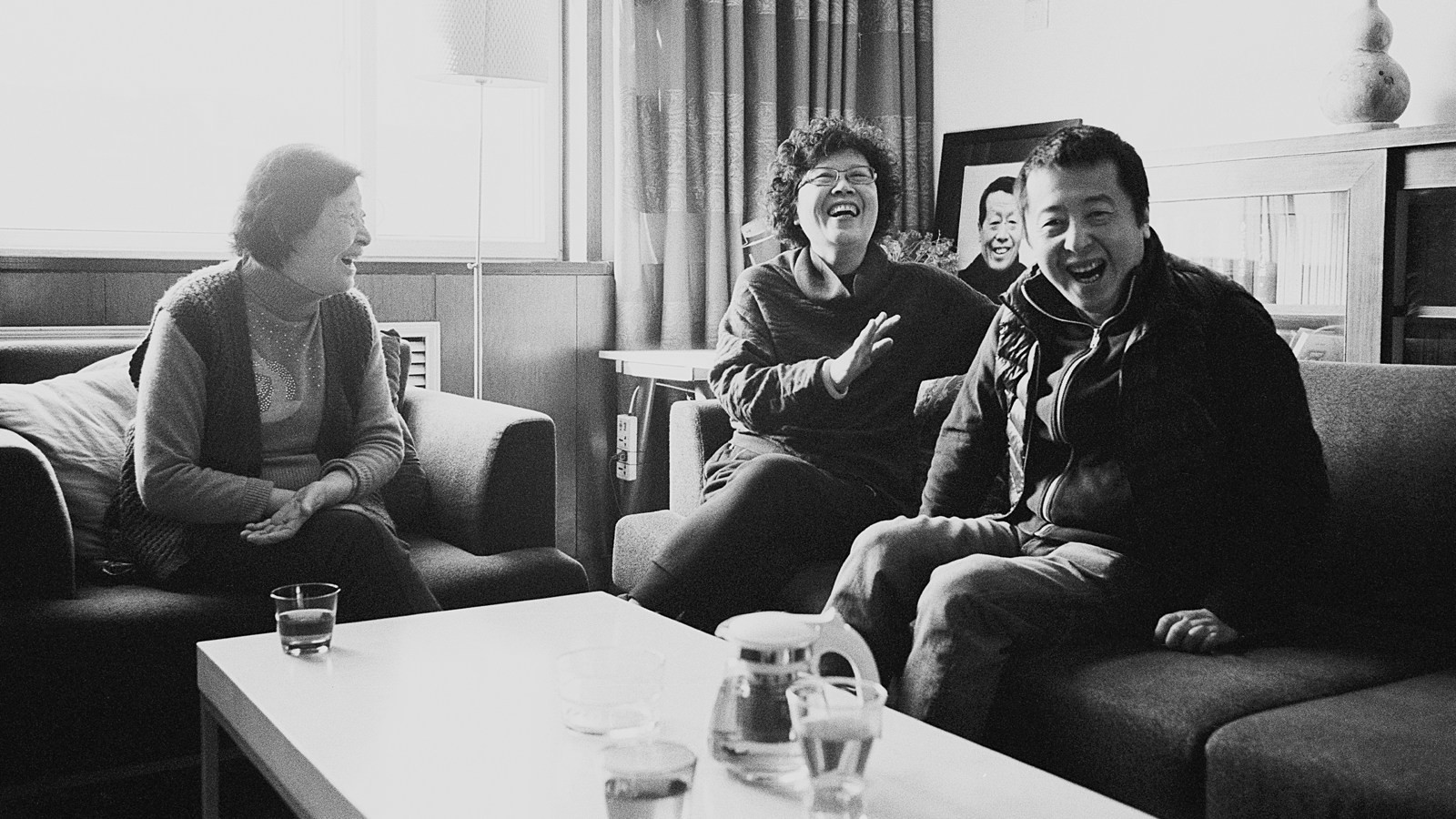Doc Corner: Jia Zhangke Gets a Tribute in 'A Guy from Fenyang'
 Tuesday, May 24, 2016 at 10:00AM
Tuesday, May 24, 2016 at 10:00AM Glenn here. Each Tuesday we bring you reviews and features on documentaries from theatres, festivals, and on demand. This week we’re looking at Walter Salles' doc about Chinese film giant Jia Zhangke.
 In the opening scene of Jia Zhangke’s sublime Mountains May Depart, characters dance to the Pet Shop Boys’ euphoric rendition of “Go West”. The song may have been a demand for a gay utopia, but it is also an apt choice for a movie in which characters slowly shift from rural China to the blue skies and bright lights of Australia. Zhangke’s characters are often caught between two worlds, travelling down a road (literal of metaphorical) to an unknown future and it is these pervading themes that have made him the unofficial cinematic chronicler of modern day China. They are also what makes Jia Zhangke: A Guy from Fenyang such a fitting tribute to the man.
In the opening scene of Jia Zhangke’s sublime Mountains May Depart, characters dance to the Pet Shop Boys’ euphoric rendition of “Go West”. The song may have been a demand for a gay utopia, but it is also an apt choice for a movie in which characters slowly shift from rural China to the blue skies and bright lights of Australia. Zhangke’s characters are often caught between two worlds, travelling down a road (literal of metaphorical) to an unknown future and it is these pervading themes that have made him the unofficial cinematic chronicler of modern day China. They are also what makes Jia Zhangke: A Guy from Fenyang such a fitting tribute to the man.
Directed by Walter Salles, A Guy from Fenyang follows the director in intimate fashion as he returns to his hometown as well as prominent filming locations featured across his filmography in movies like Xiao Wu, The World, Platform, Still Life (my personal favourite of his works), and most prominently A Touch of Sin for which this doc was made as a sort of companion piece. [More...]
Despite not featuring on screen, Salles lingers over the proceedings far more than another might have. He is wise to have excised himself from the documentary’s narrative, and yet the film nonetheless lingers with the unspoken knowledge that these are two filmmakers who share many traits despite their differences. Knowing Salles career as we do, the documentary becomes a sort of silent dialogue between two men obsessed with the journey as much as the destination.
Viewers who are perhaps less knowledgeable of Zhangke’s career will likely cherish the amount of clips included that visualize the anecdotes of the director and his collaborators beautifully. Regular cinematographer Nelson Lik-wai Yu has a particularly humorous observation of how Zhangke forced him into digital cameras, while his wife and frequent star Zhao Tao shares some deeply personal reminiscings on how she came to work with Zhangke. Those who have already seen the films at hand, however, may wish for more of the man himself. Especially so since many of the best scenes are those where he visits prior filming locations, but as edited by Joana Collier, the clips are at least smartly inserted to better demonstrate how much or how little these places have changed – typically not for the better – in the face of China’s rapid progression as a leading world powerhouse. The film is also aided by Inti Briones’ wonderful camerawork, which captures the rough, calloused landscape with a sleek beauty that sets the film as a step above the usual director-focused doc title (think Double Take or Liv & Ingmar).
Given how little I knew about the filmmaker despite having seen many of his works, I found A Guy from Fenyang to be a refreshing piece of work. Relevant, too, as a look at Chinese artistry at a time when his own films aren’t released in Chinese theatres (he even praises the DVD pirates selling his films on the street). It has a humble simplicity to it that is befitting a director whose works are so often about the disenfranchised and those who struggle amid their surroundings. Fans will find much to appreciate in the stories and the personal reflections that this film offers. For those new to his world, it should offer the incentive to dig deeper into the career of one of modern cinema’s finest artists.
Release: Opens in select cities this weekend alongside Mountains May Depart, A Touch of Sin, and Still Life. VOD and DVD in the US fall.
Oscar Chances: Unlikely as docs about movie-makers curiously rarely get attention with Oscar.




Reader Comments (4)
Thanks for this. Jia is indeed a superb director. But would you write a piece about Godard, Fellini, and Bergman and refer to them throughout as Jean-Luc, Federico and Ingmar?
VAI BRAZIL CARALHO
MOSTRA SUA CARA CENTRAL DO BRASIL FEIJOADA
Jackson, I admit that that's a slip of mine. I sometimes get confused by what the protocol is in that regard. My bad.